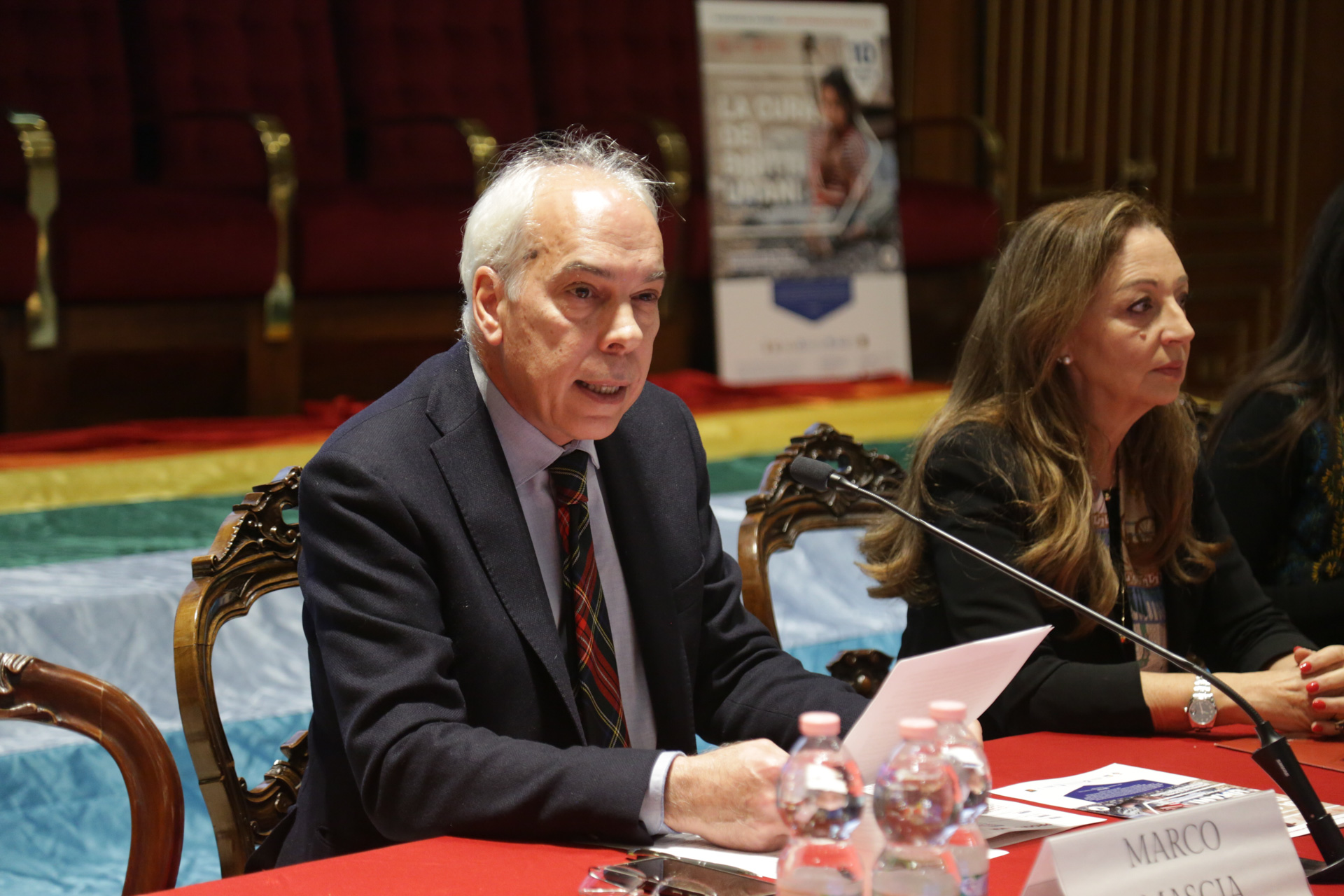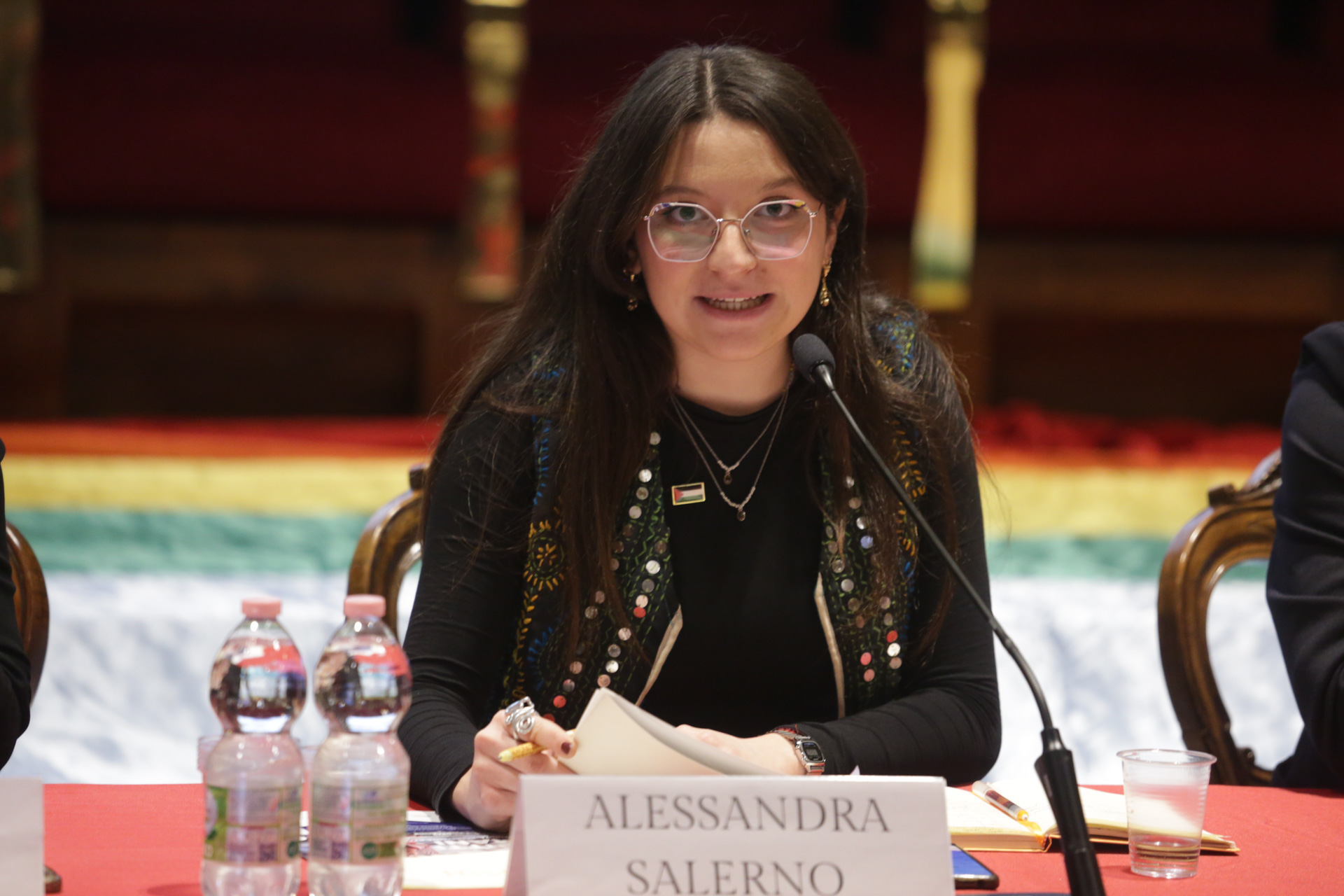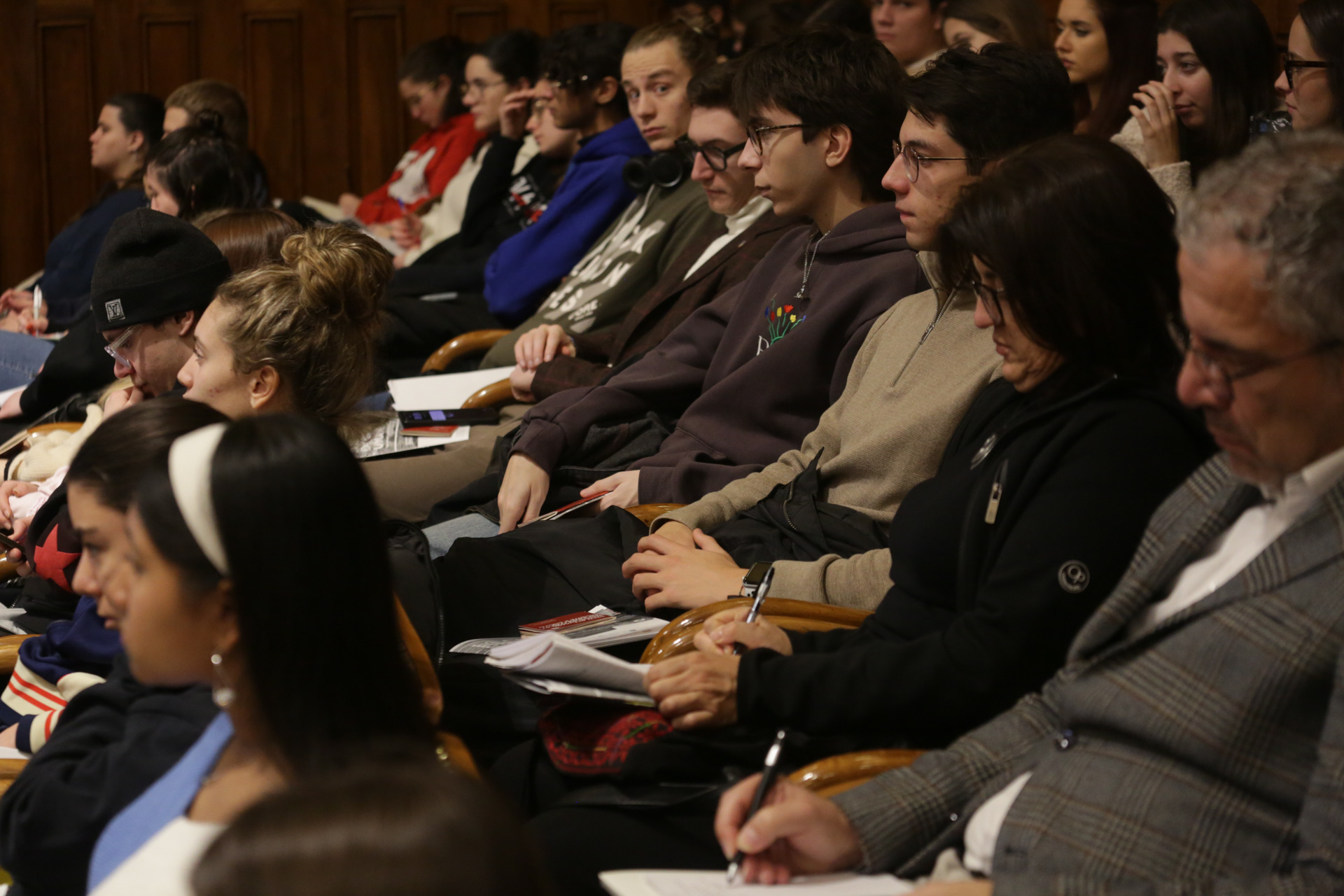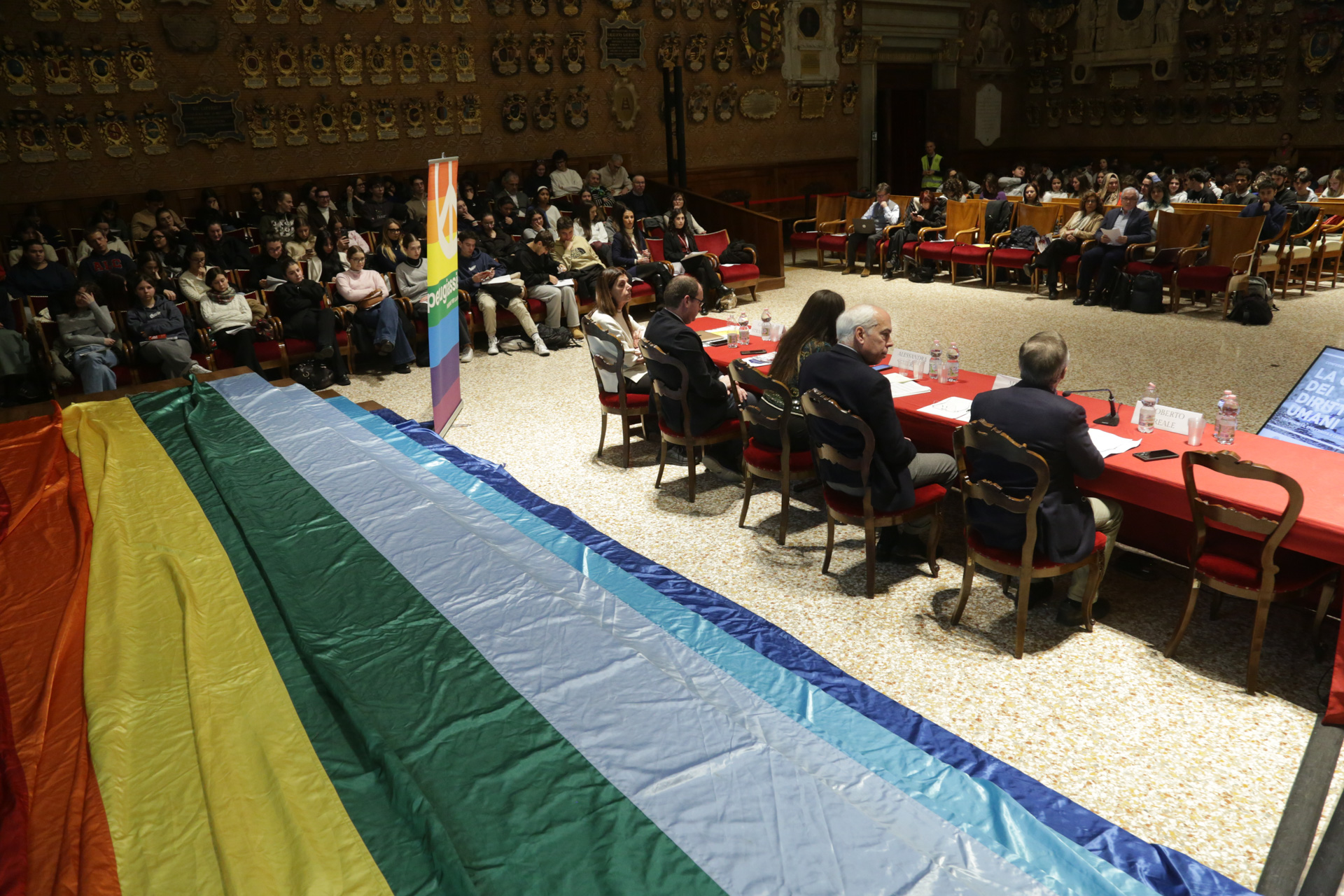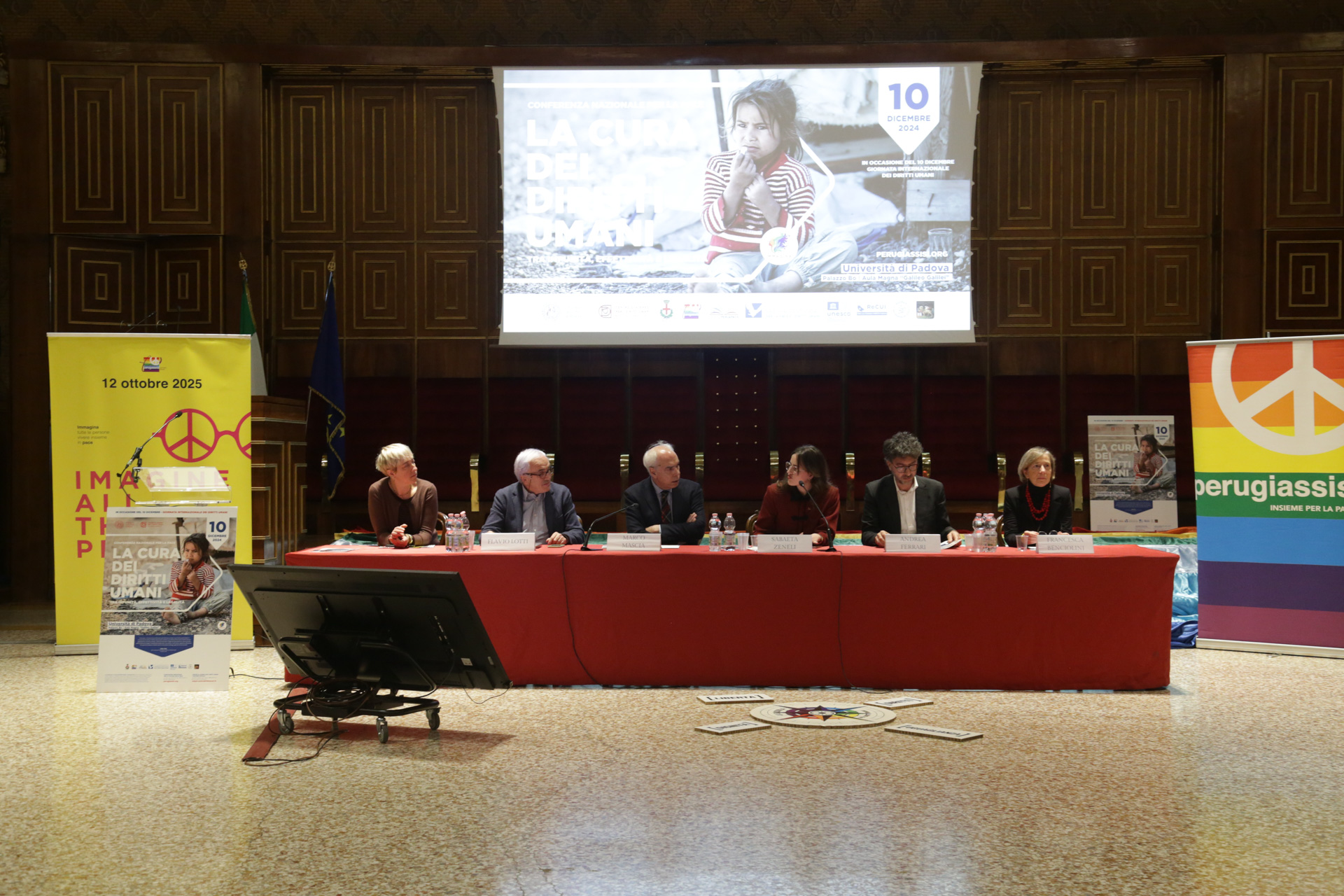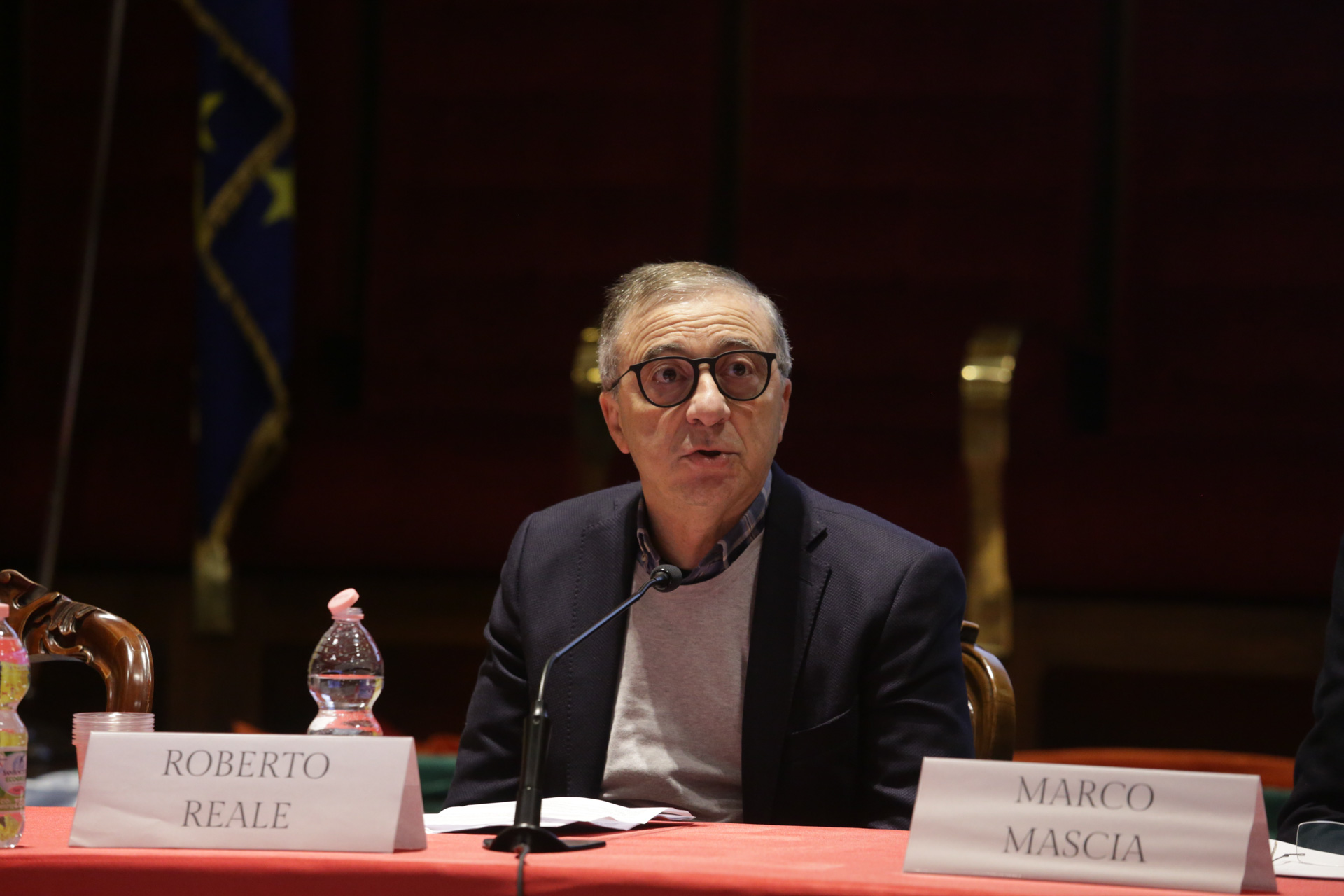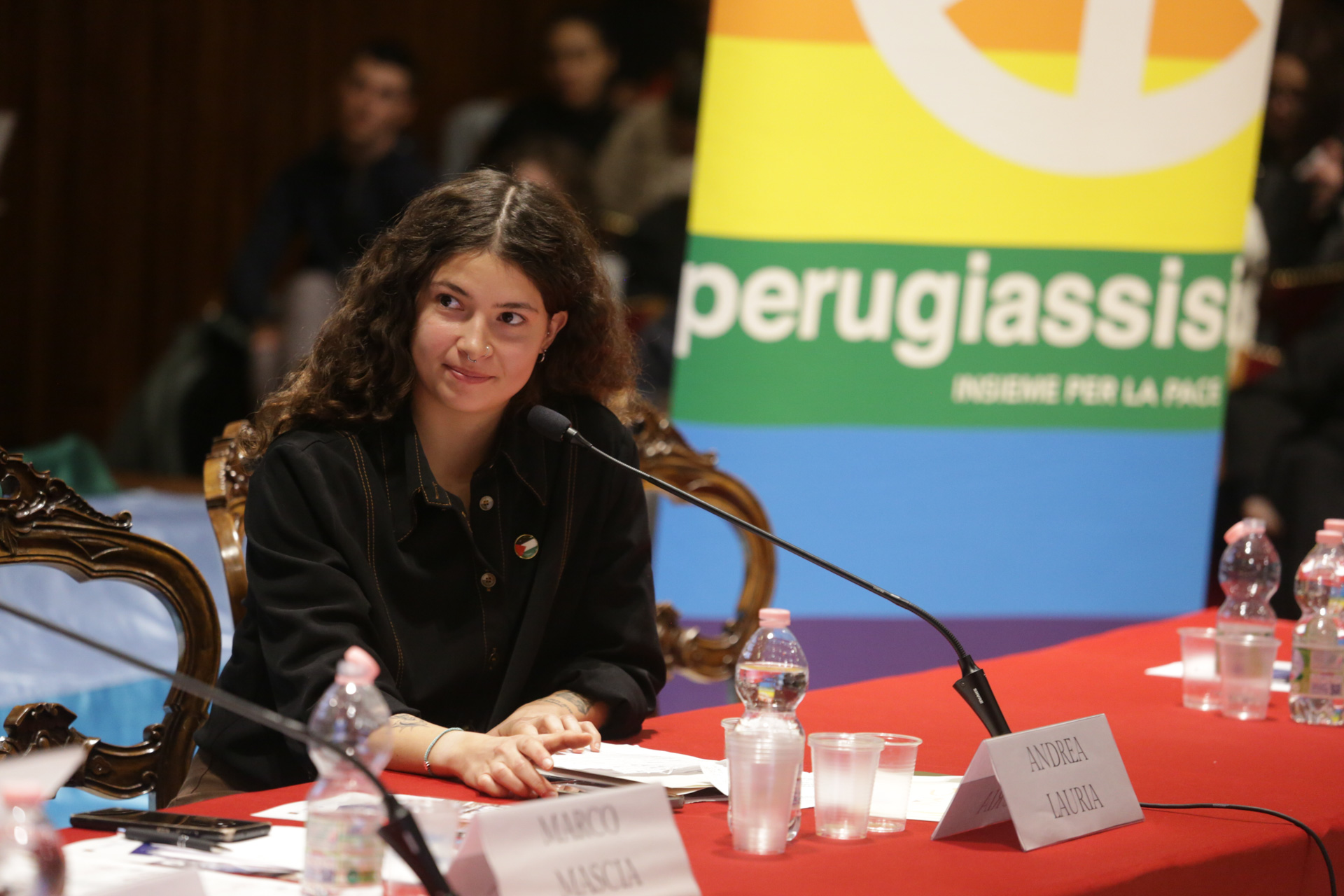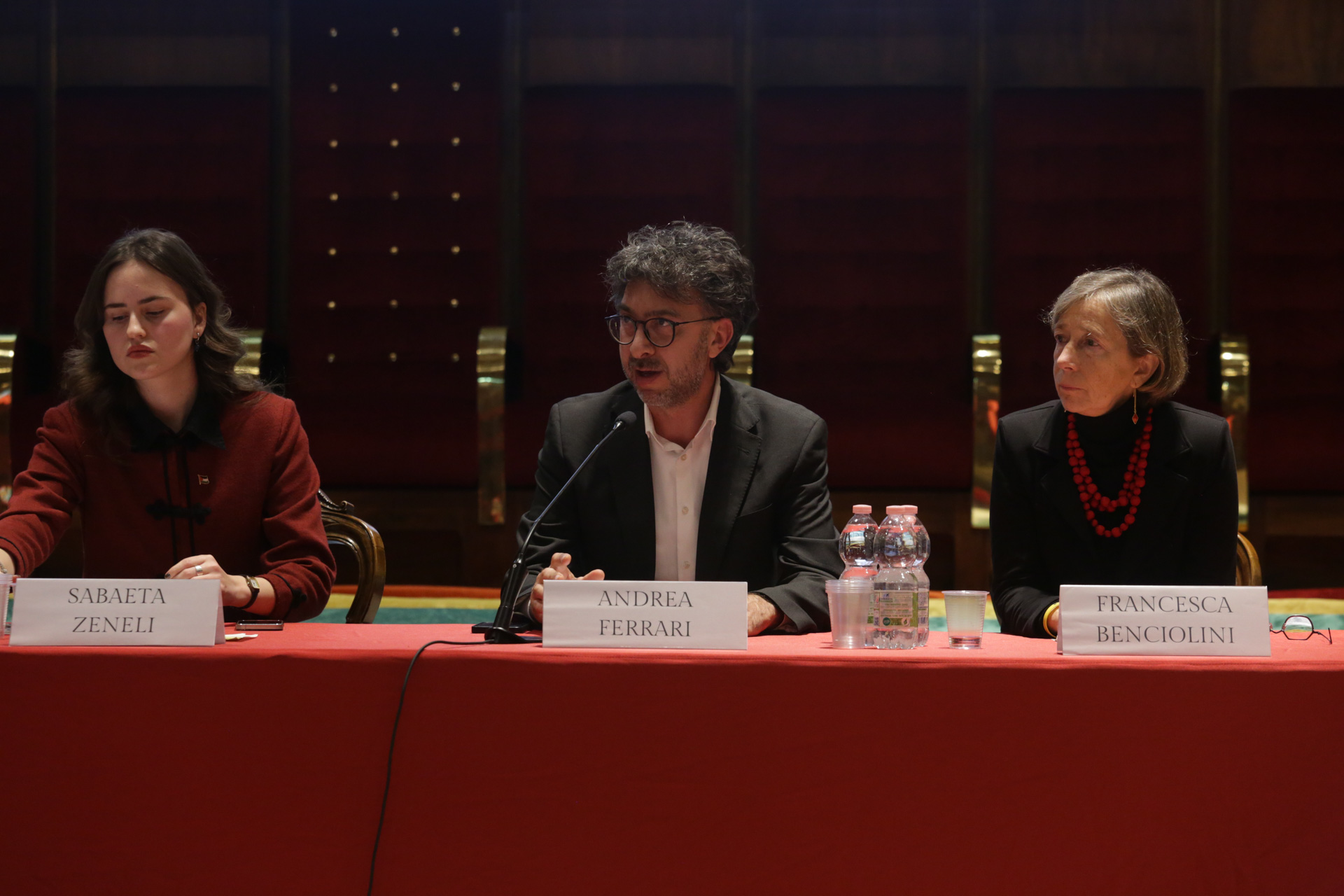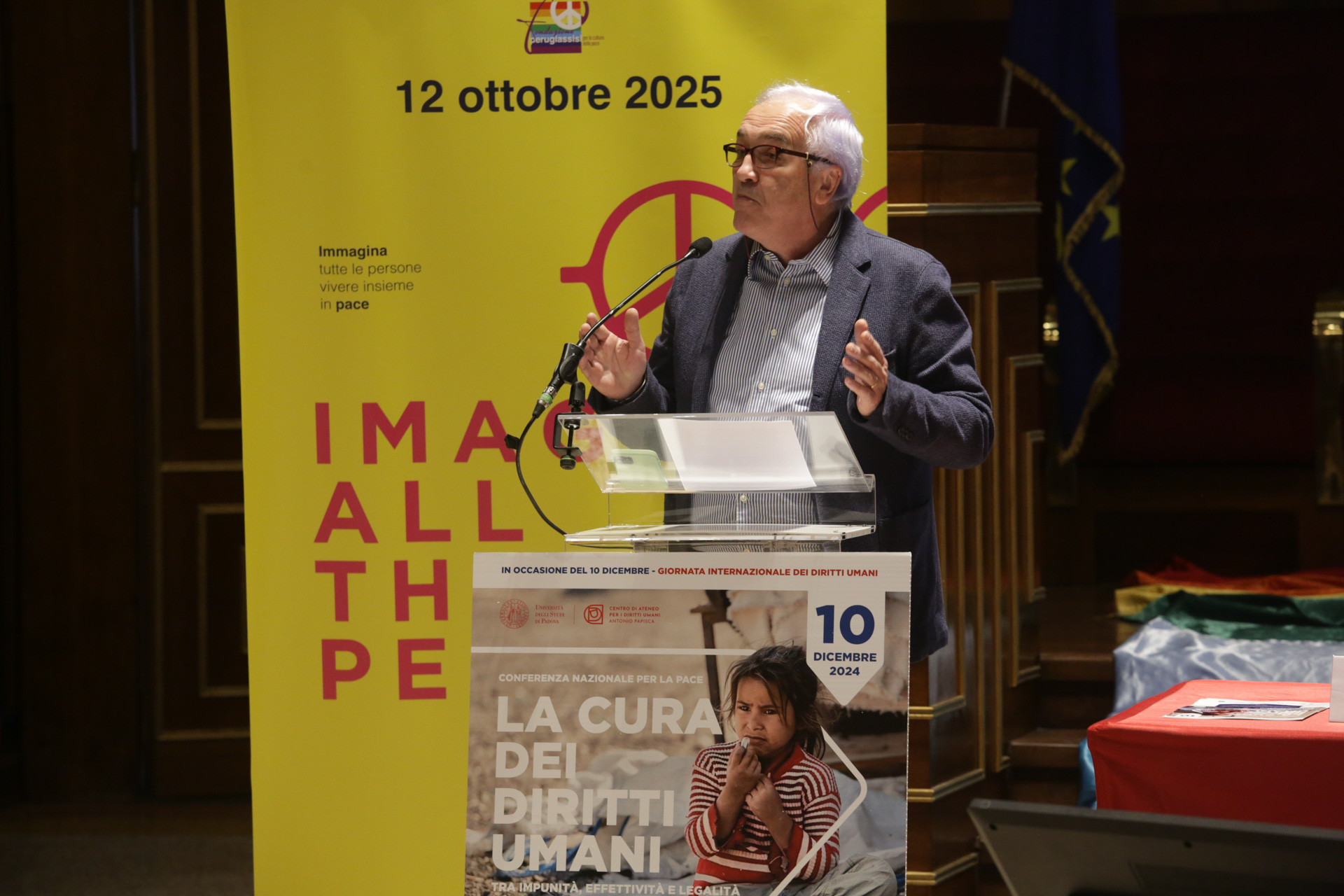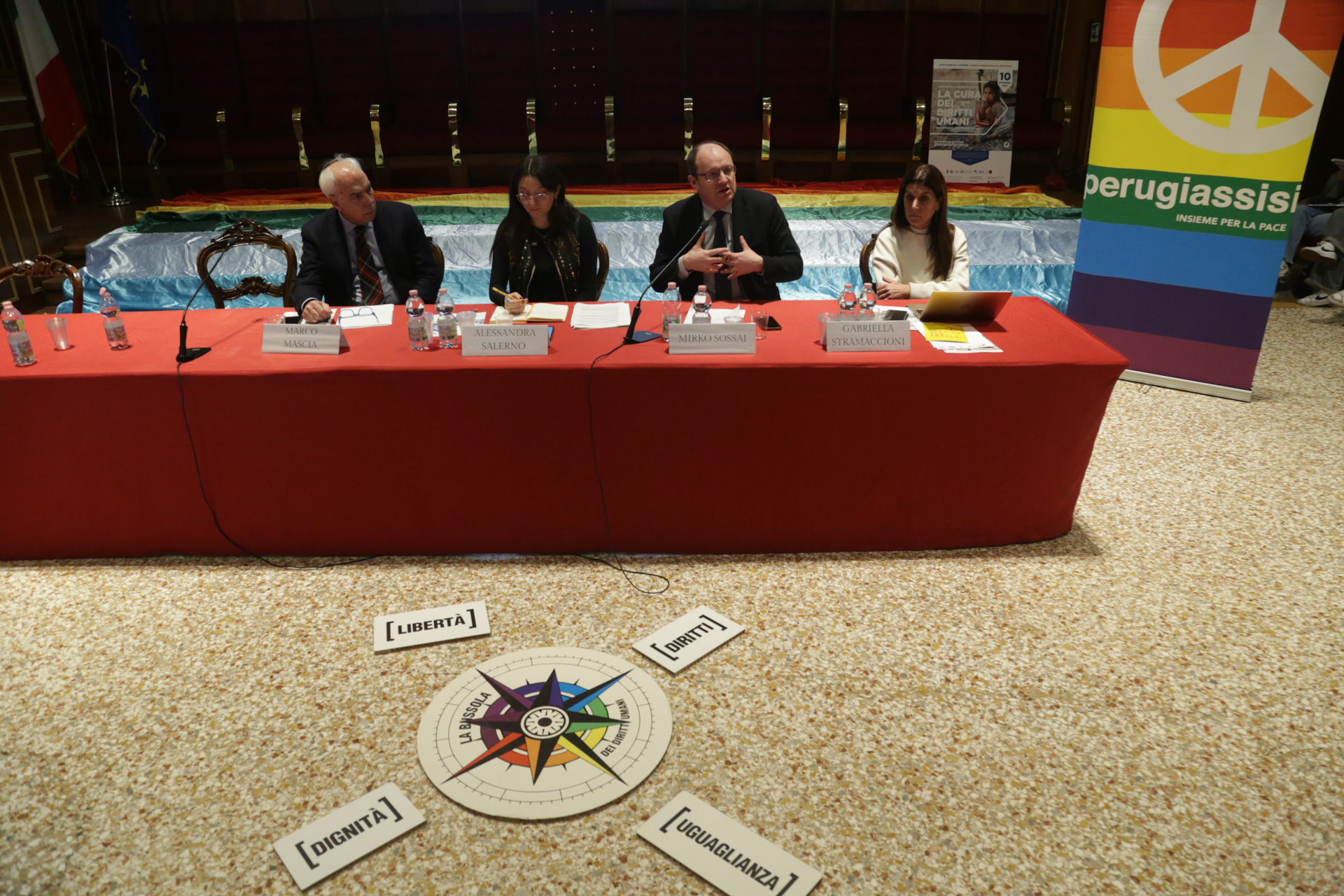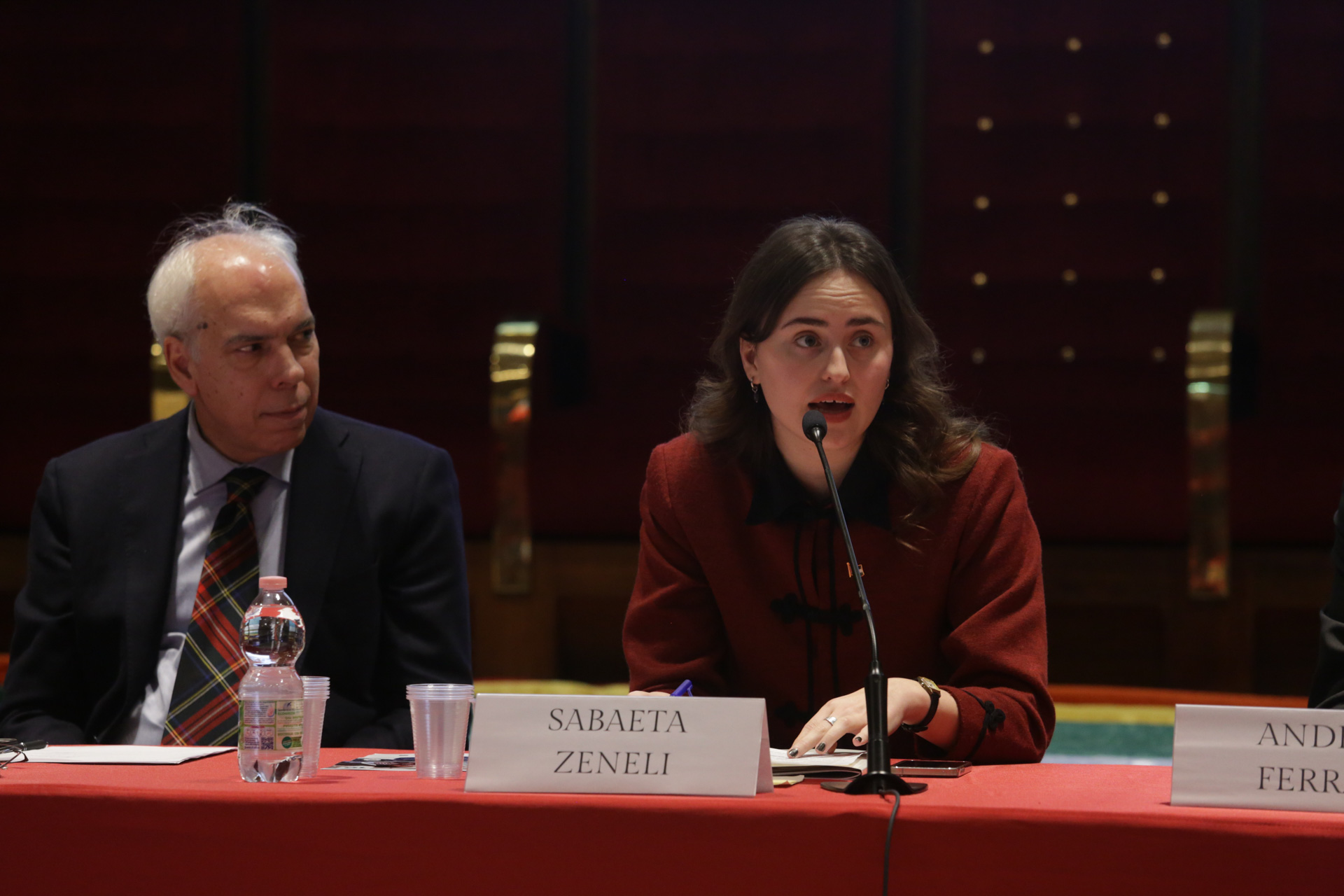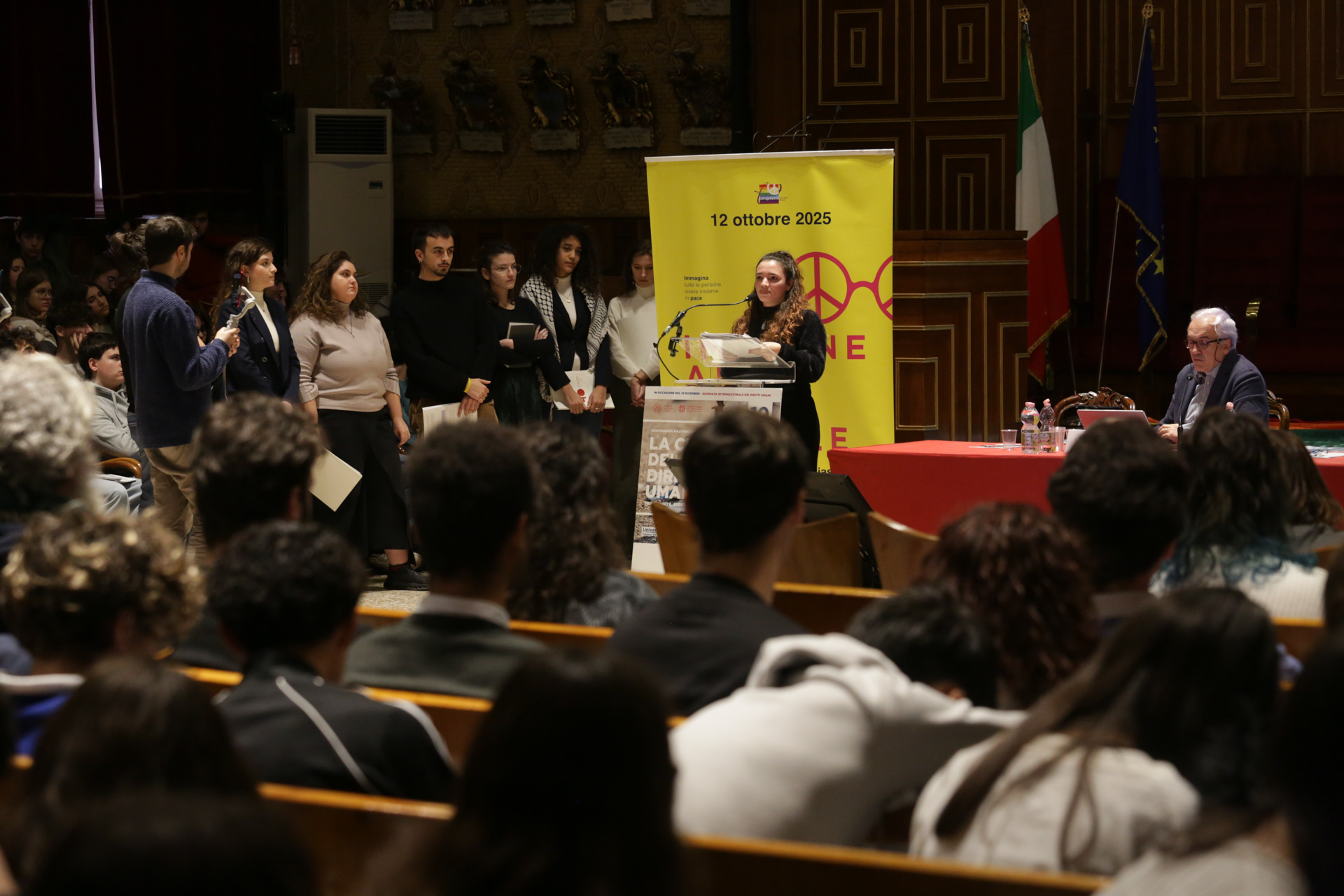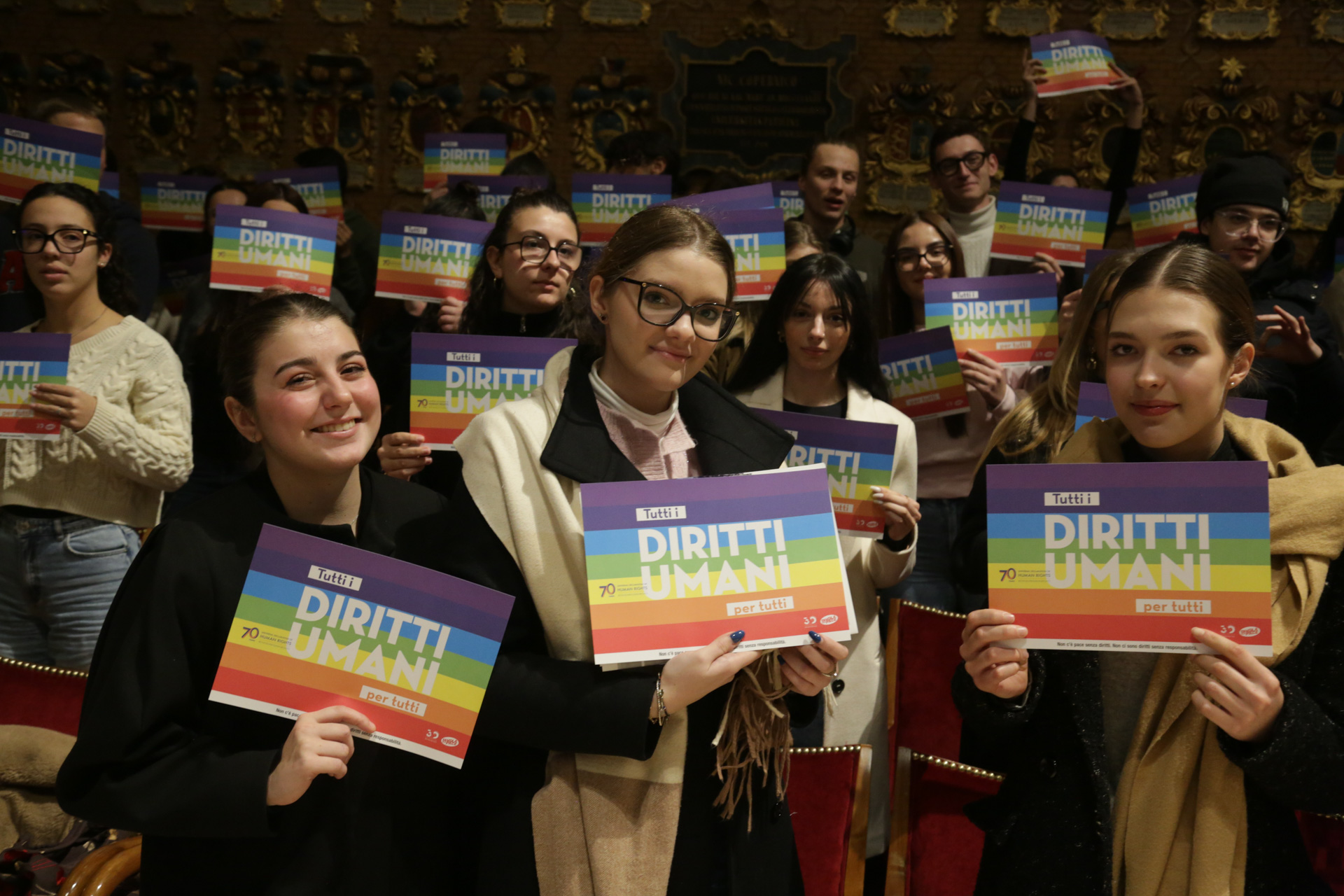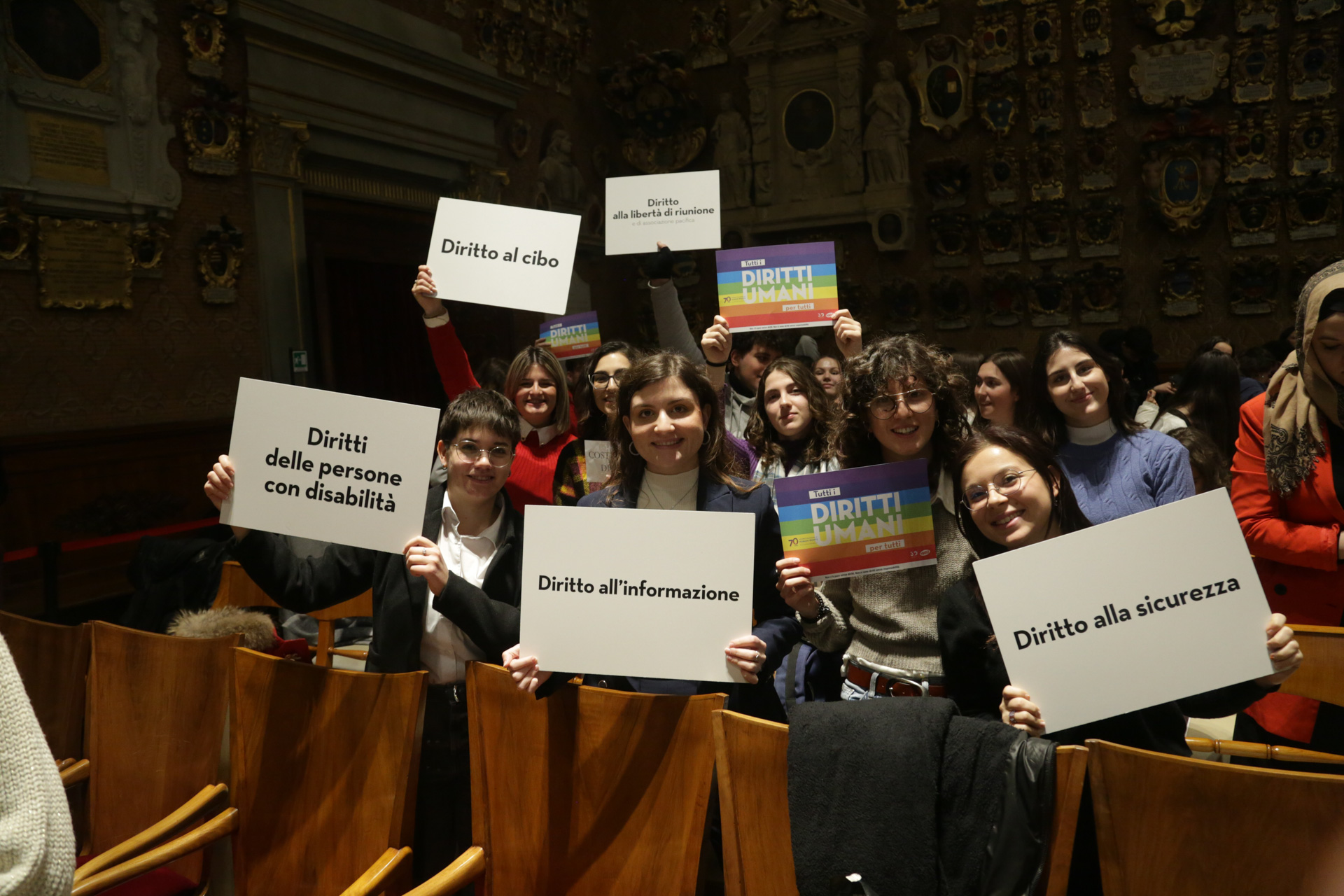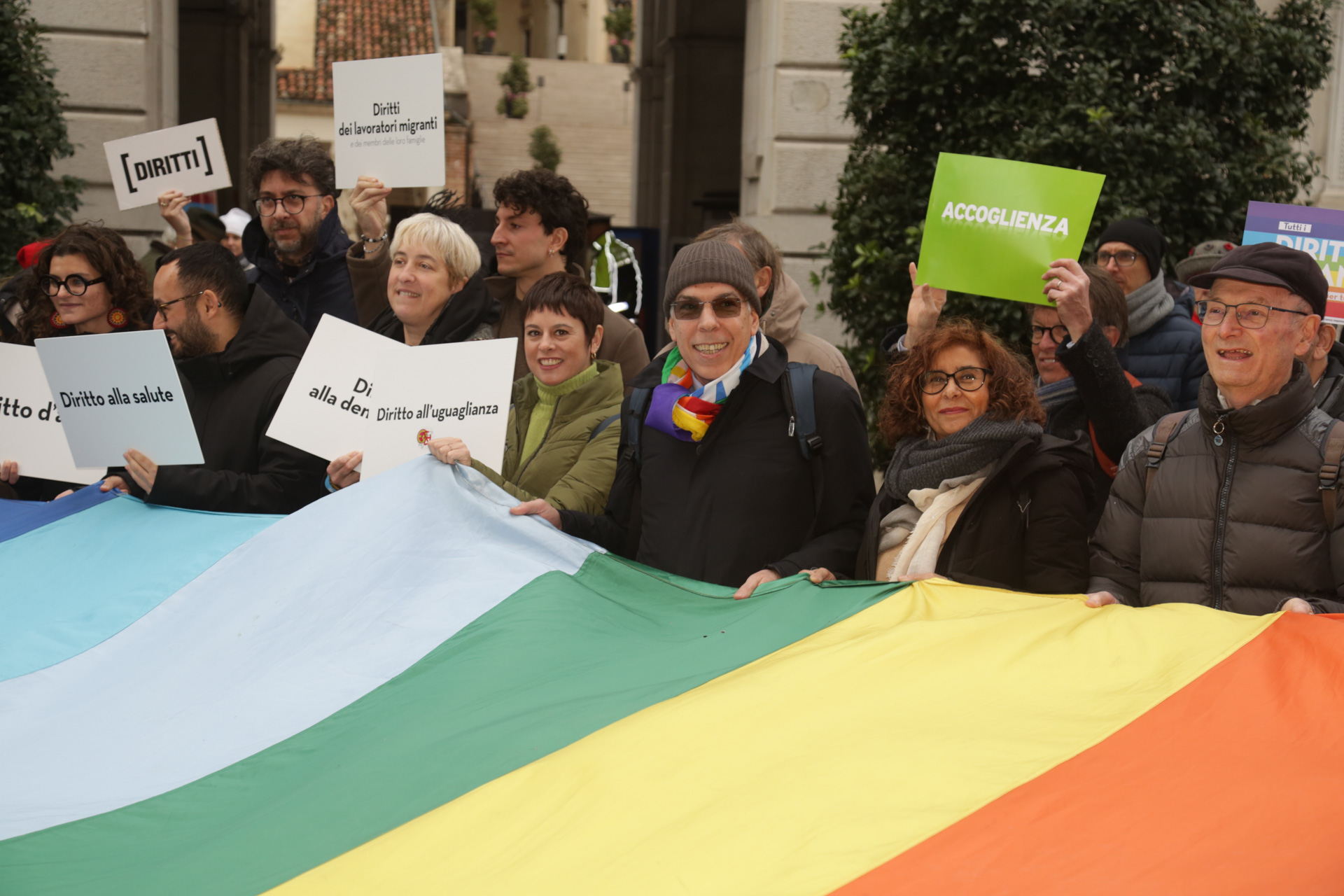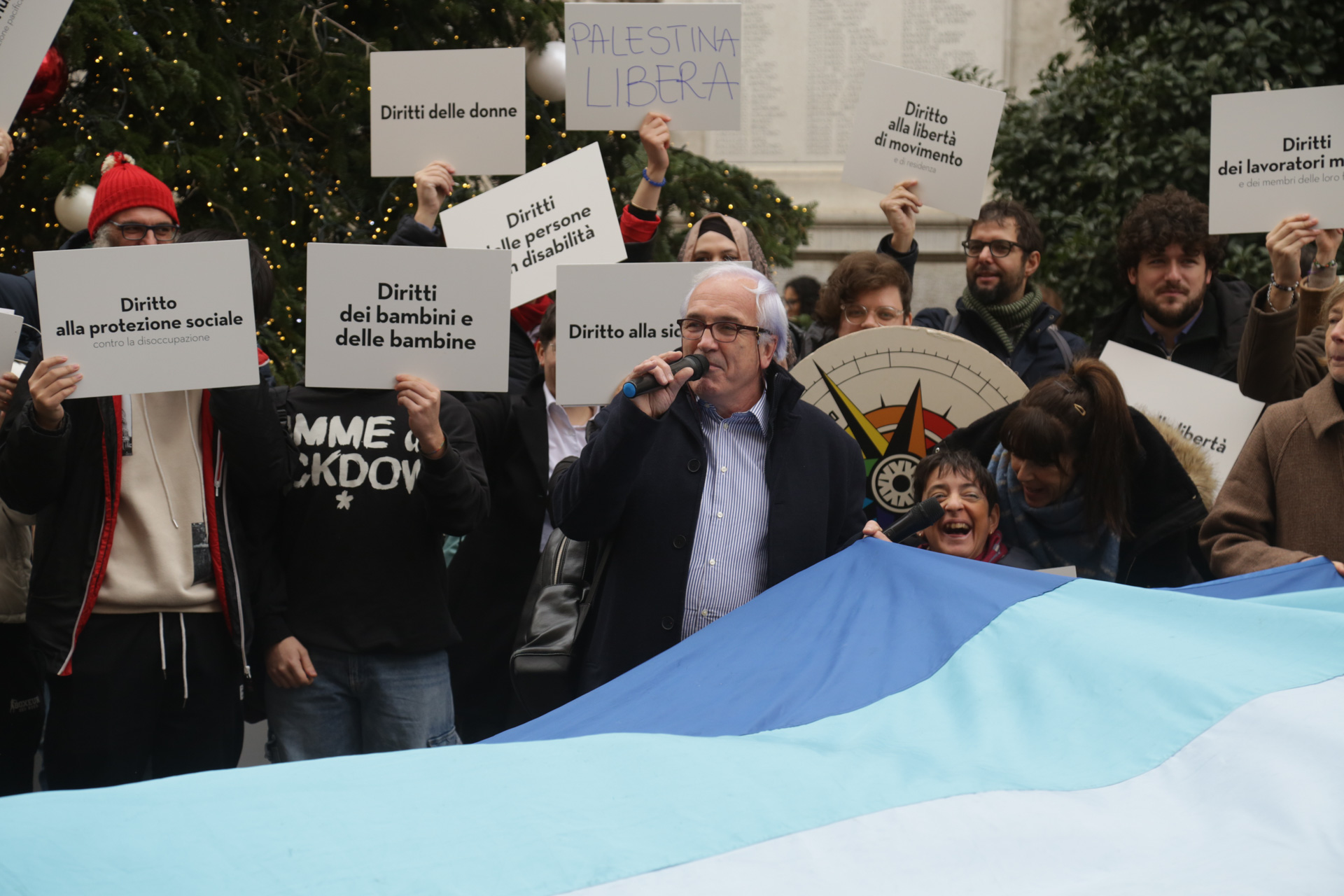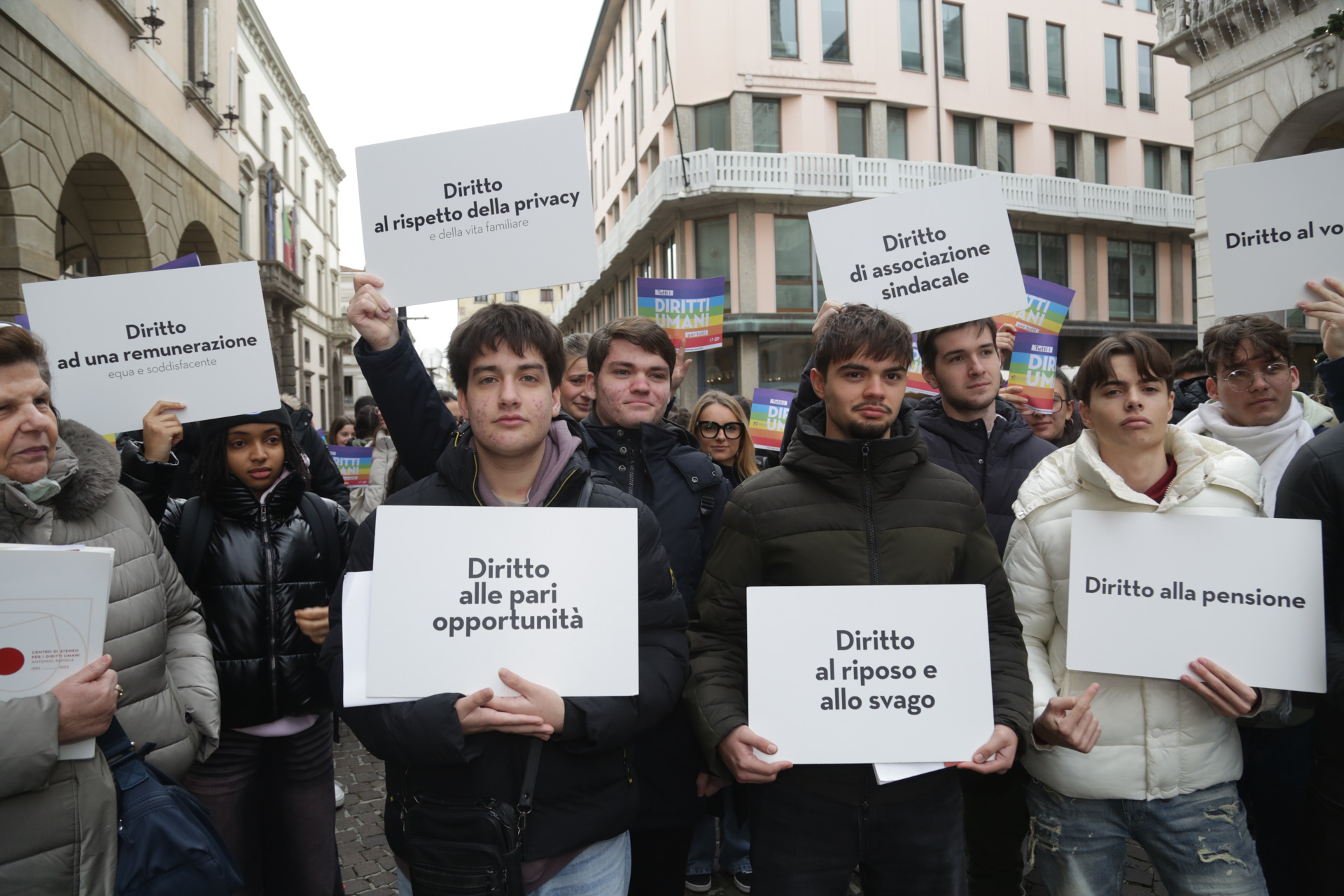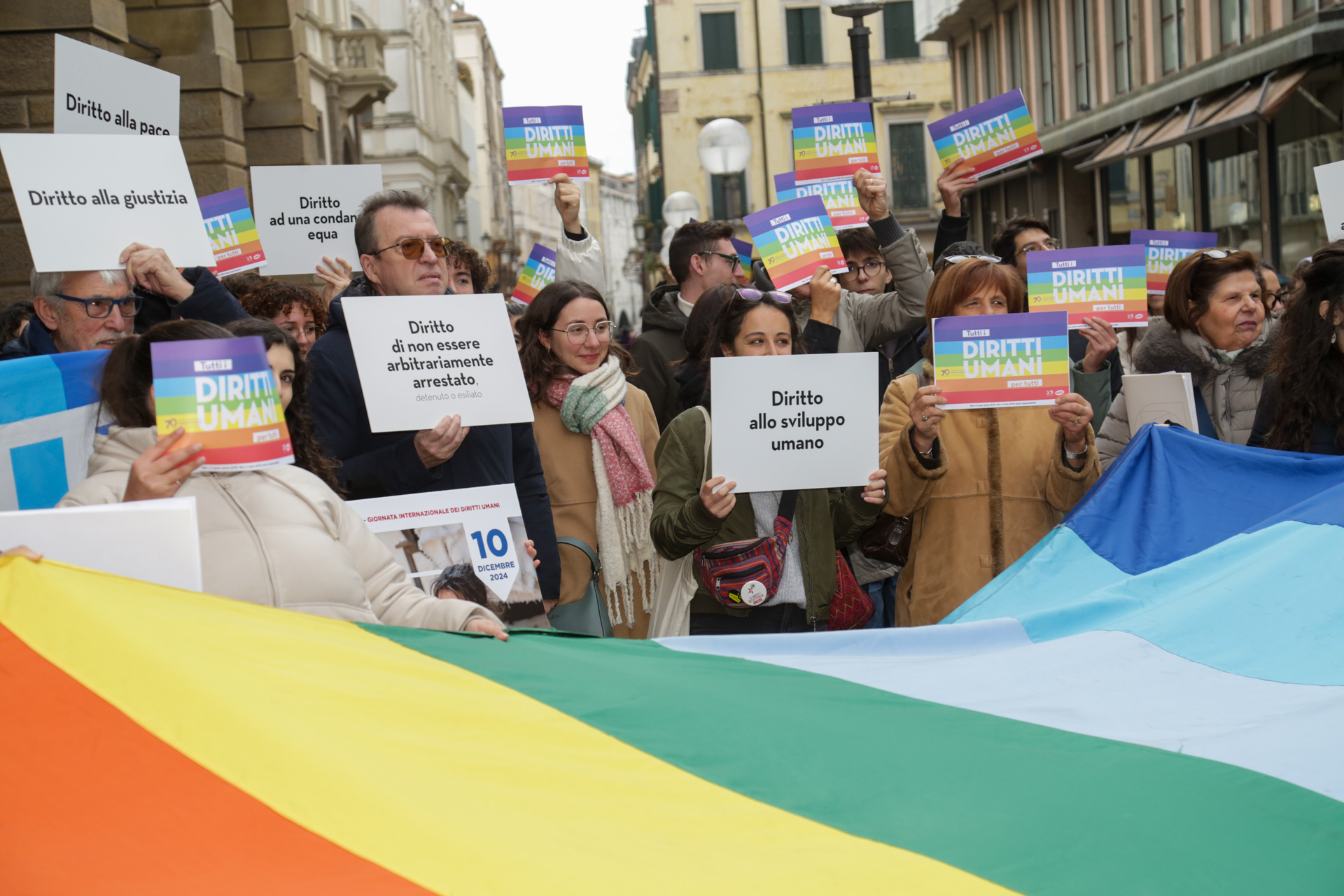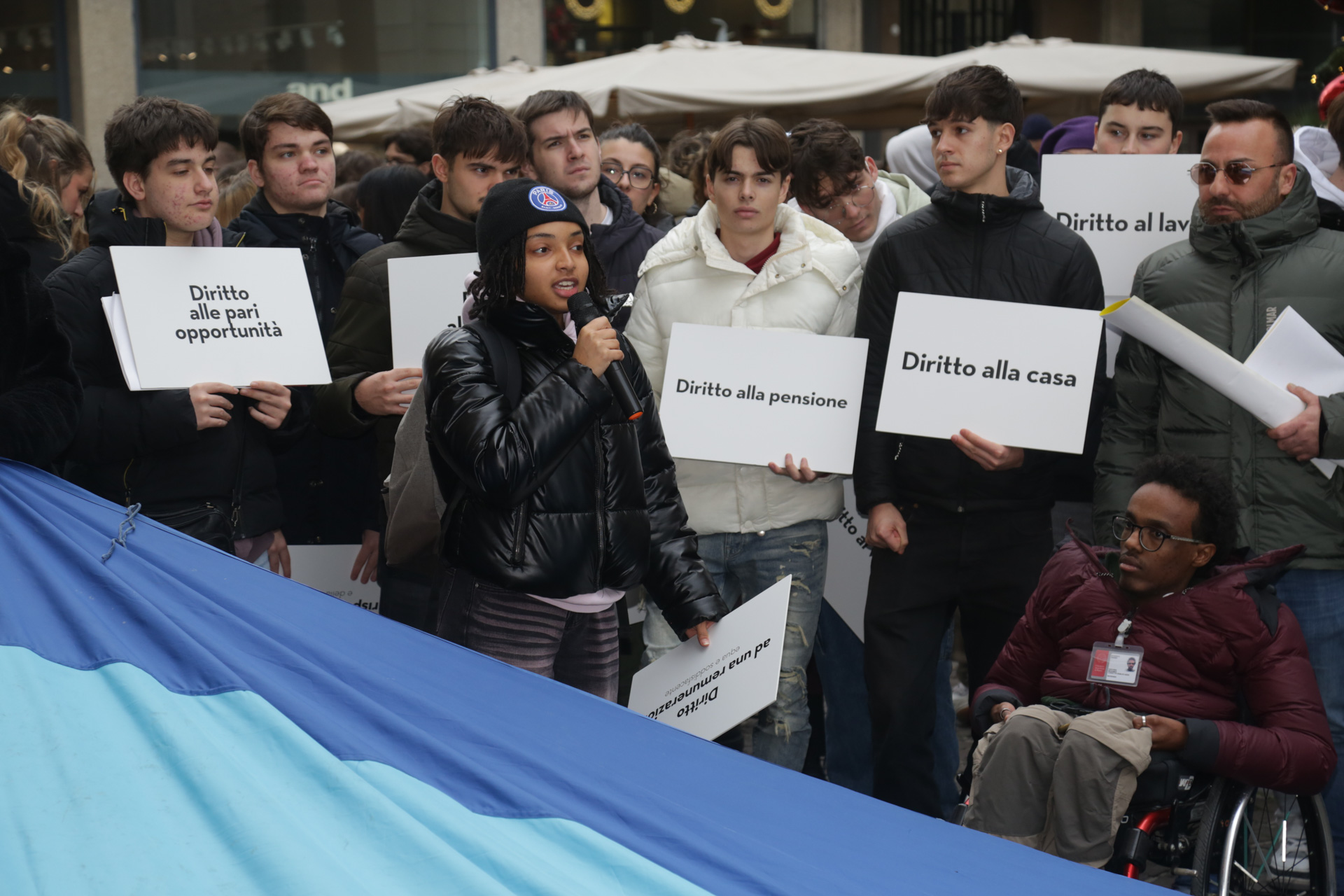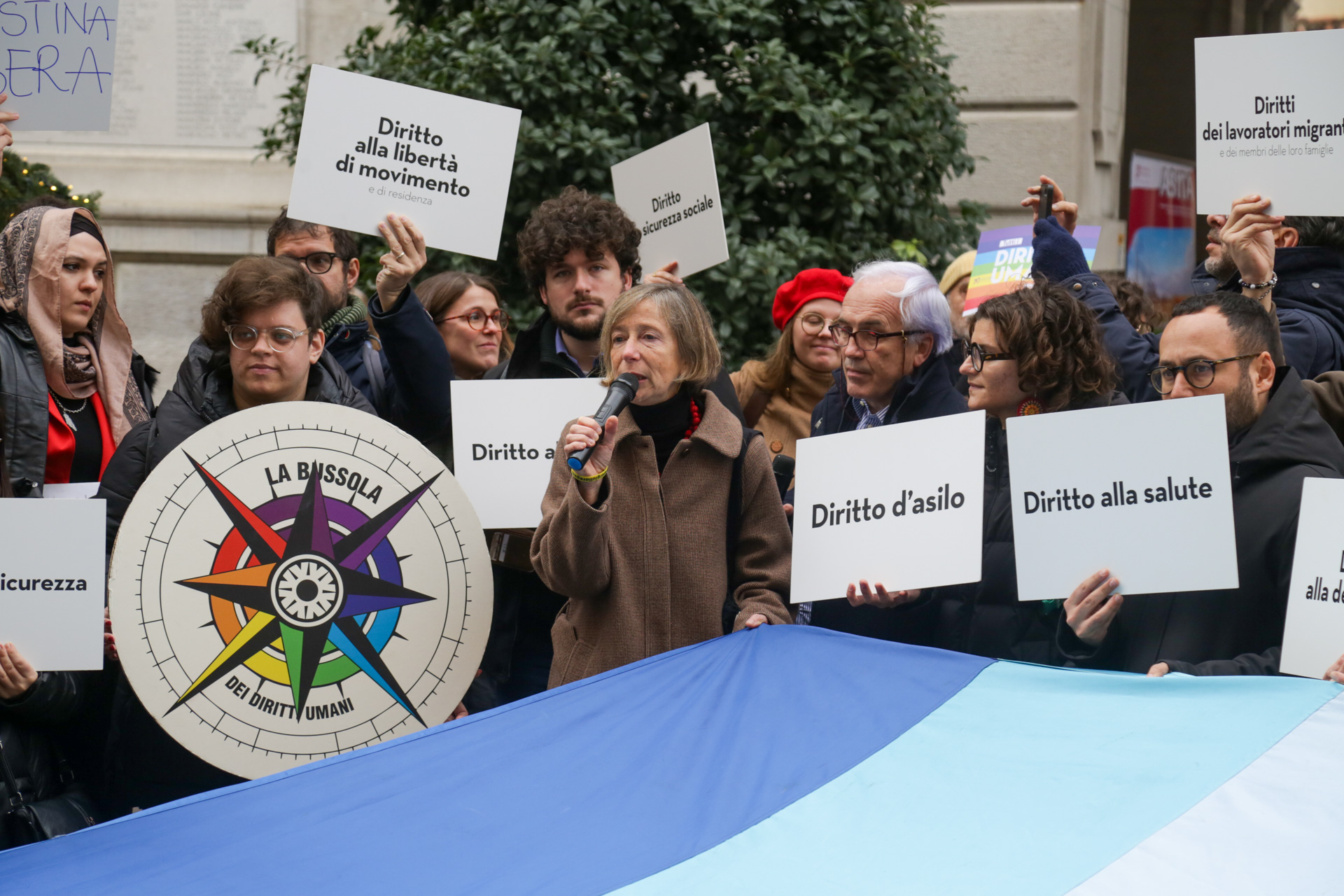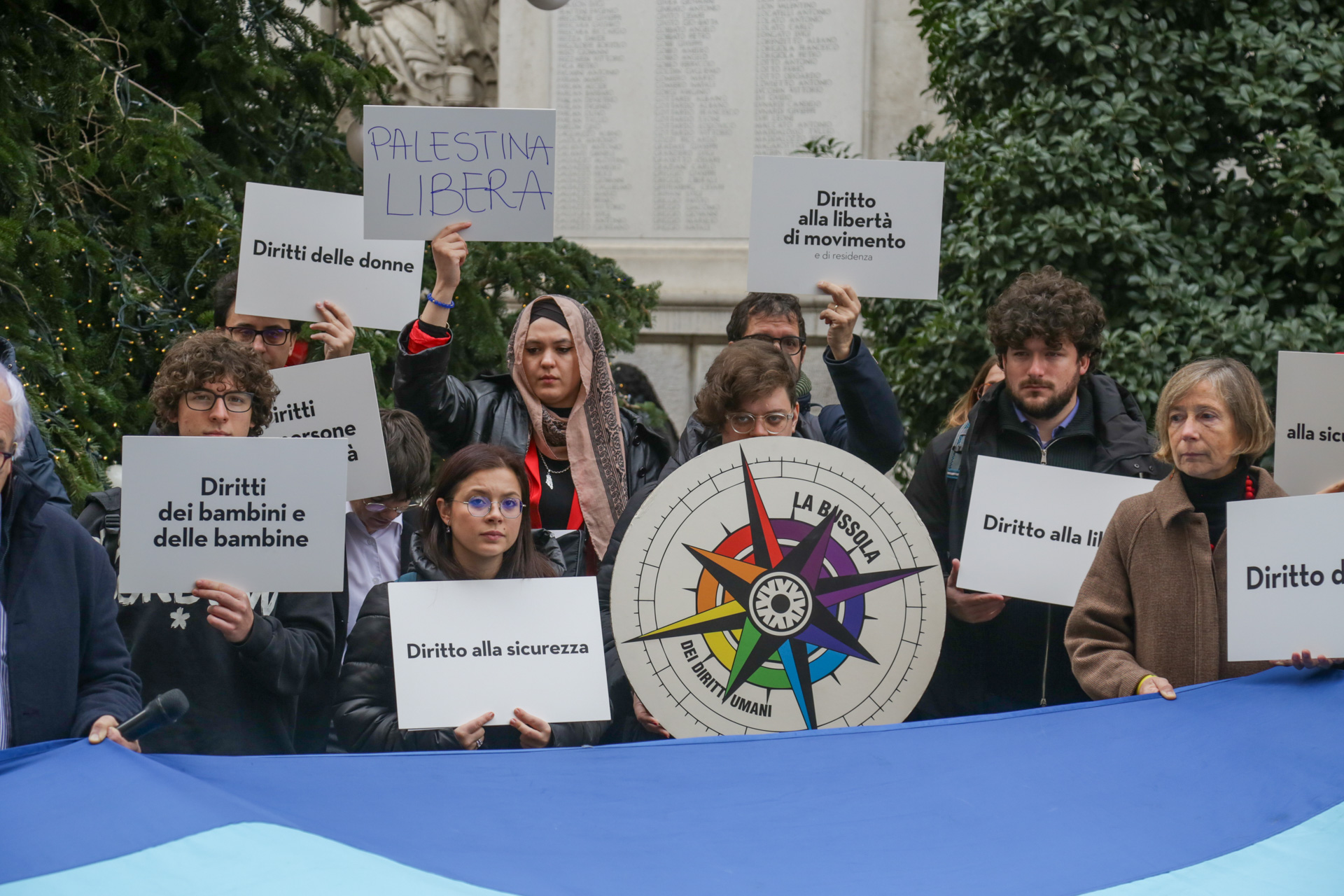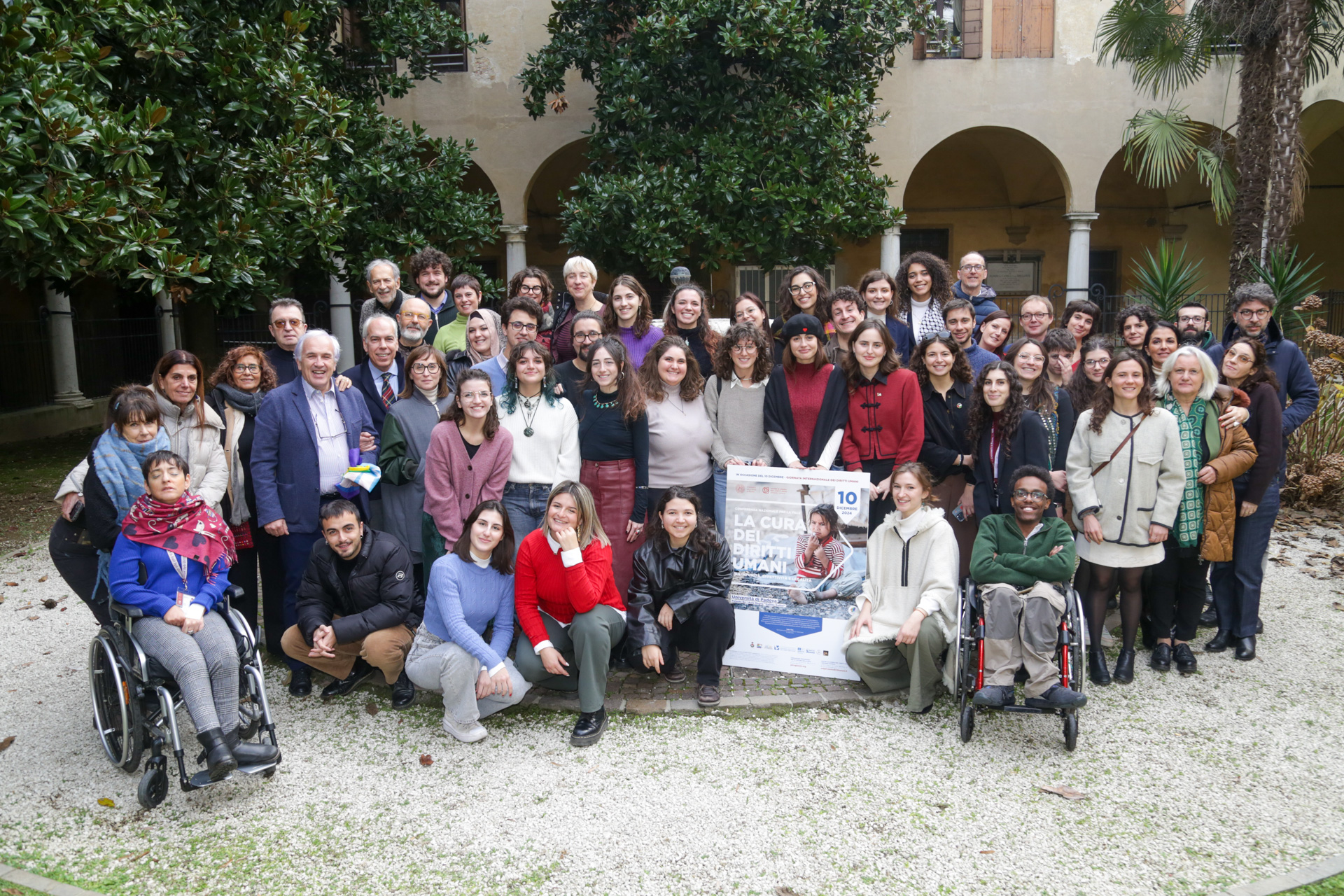International Human Rights Day 2024: Caring for human rights between impunity, effectiveness and legality, University of Padova, 10 December 2024
-
Event date: Tuesday 10 December 2024
-
Venue: Università di Padova, Palazzo Bo, Aula Magna “Galileo Galilei”

On the occasion of 10 December - International Human Rights Day
National Peace Conference
Caring for human rights between impunity, effectiveness and legality
“We are in a particularly dangerous period in history, when disregard, disrespect for international human rights law and international humanitarian law is reaching a deafening crescendo.
International law is the edifice that generations before us built to protect humanity from self-destruction. Without law, there is only violence, injustice and exploitation. Investment in human rights is an investment in peace, today more essential than ever.”
Volker Türk, UN High Commissioner for Human Rights, 17 October 2024
Programme
8.45 a.m. Welcoming of participants
9.15 a.m. Welcome
Daniela Mapelli, Rector of the University of Padova
9.30 a.m. Introduction
Moderated by
Alessandra Salerno, Advocacy Hub: Students' Voices at the Human Rights Centre
Caring for human rights between impunity, effectiveness and legality
Marco Mascia, President of the University Centre for Human Rights ‘Antonio Papisca’, Unesco Chair Human Rights, Democracy and Peace, Coordinator of the Network of Italian Universities for Peace, University of Padova
Mirko Sossai, Professor of International Law, University of Roma Tre
Gabriella Stramaccioni, PerugiAssisi Foundation for the Culture of Peace, former National Coordinator of the Libera Association, Expert of the CNEL Technical Unit for the economic, social and work inclusion of people deprived of their liberty
10.10 a.m.
Human rights under attack between censorship and disinformation
Roberto Reale, Journalist and writer, ‘La Cura del Vero’ Association
10.20 a.m.
Moderated by
Sabaeta Zeneli, Advocacy Hub: Students' Voices at the Human Rights Centre
Imagine all people living together in peace
Flavio Lotti, President of the PerugiAssisi Foundation for the Culture of Peace
10.35 a.m.
Cities for the Effectiveness of Human Rights
Andrea Ferrari, President of the National Coordination of Local Authorities for Peace and Human Rights
Francesca Benciolini, Assessor for Peace, Human Rights and International Cooperation, Municipality of Padova
Vania Trolese, Vice Mayor, Assessor for Peace and Human Rights, Municipality of Camponogara
11.00 a.m. - 12.00 noon
The Human Rights’ Hour: ‘10 things everyone should know’
Moderated by
Andrea Lauria, Advocacy Hub: Students' Voices at the Human Rights Centre
Introduced by Fabiana Cruciani, Head Teacher, Coordinator of the National Network of Peace Schools
The ‘Young Peacebuilders’ Sara Ongaro, Gaia Cupoli, Sofia Moschin, Cristina Palomba, Marianna Pioli, Paola Pizza, Valeria Benedetti, Mariam Ghrissi, Lorenzo Magnoni and Mattia Sconcerti present:
1. What are human rights?
2. Human rights are universal, interdependent and indivisible
3. Let's not call them rights of men any more
4. Dignity first
5. Where is it written that we have these rights?
6. Not all are fundamental rights
7. Rights have not always been there
8. Human rights continue to be violated, trampled on, ignored
9. There are no rights without responsibilities
10. Human rights begin in our city
12.00 noon Unanimous Appeal:
Let us take care of human rights
12.10 p.m.
Call to mobilisation of young people ‘Let's take back the future’
by the “Young PeaceBuilders”
12.20 p.m. Flash mob in VIII Febbraio street
Let's defend Human Rights. For everyone to do something
Caring for human rights
Between impunity, effectiveness, legality
In the face of the ongoing massive violations of human rights, legality and international human rights law, in the face of the ongoing escalation of carnage and the tragic consequences of so many war crimes and crimes against humanity that go unpunished and so many binding decisions of the Security Council and the International Court of Justice that remain ignored, International Human Rights Day 2024 intends to focus on three words: impunity, effectiveness, legality.
Impunity
"A growing number of governments feel entitled to trample on international law, breach the Charter of the United Nations, the international conventions on human rights and the decisions of international tribunals without anything happening" (António Guterres, Secretary-General of the United Nations, Sep. 24 2024).
Impunity is the most significant obstacle to justice and reparation for victims and survivors of human rights violations and war crimes and crimes against humanity. Often, omissions or insufficient action result in scenarios of total or partial impunity.
Impunity fuels inequalities, disproportionately affects the most vulnerable, and undermines trust in democratic institutions and in domestic and international law.
The responsibility to investigate and punish brutal atrocities such as genocide, crimes against humanity and war crimes is a legal obligation for states. Neither political nor state reason can be invoked to disregard this obligation.
Effectiveness
"Wherever there is a concern for life and liberty, no matter where on earth or in what cultural and political context, there it cries out: ‘human rights’. The claim of those suffering dictatorships and misery makes the effectiveness of International Human Rights Law no less important than court rulings. It is the profound conscience of the members of the human family, particularly the weakest and most vulnerable, that acts as the supreme tribunal" (Antonio Papisca).
The effectiveness of international human rights law derives from the interaction between multiple actors, norms and institutions located at different levels of governance, ‘from the City to the UN’. Crucial is social and educational mobilisation, civil society activism and interaction with international guarantee institutions. Governments have an obligation to make these institutions work, as they are crucial on the road to building peace in justice.
In our country, municipal statutes are appropriating the international law of human rights and working to bring it down to the levels of everyday life, thus making themselves direct assertors of the ef-fectivity of norms to which the Constitution of the Italian Republic itself conforms according to Articles 10 and 11.
Legality
"Legality is not a goal: the goal is social justice, legality is the means not the end. There can never be justice and peace until there are equal rights. Legality must serve to build equality, laws must serve to build policies of justice. For the good of all, and not for the privileges of a few. There is no legality without equality" (Don Luigi Ciotti).
Legality defines the perimeter of individual freedoms. It indicates the space within which an individual can exercise his freedom without violating the freedom of others.
Legality means that the force of law must prevail over the law of force. For there to be legality there is a need for responsibility and justice. Legality prepares one to take responsibility for active and democratic citizenship roles in one's community.
Responsibility is the acted legality: it does not only imply knowledge of the rules and respect for one's duties but also the willingness and ability to act personally for the implementation of the constitutional and universal principles of solidarity, justice and equality.
8.30 pm
HYMN TO FREEDOM.
Concert on the occasion of International Human Rights Day 2024
Sala dei Giganti of the University of Padova, Arco Valaresso
Promoted by the Concentus Musicus Patavinus and the Human Rights Centre of the University of Padova, the concert will feature the performance of a string quartet by Haydn on musical instruments resulting from the lutherie work of the ‘Metamorphosis’ project of the Casa dello Spirito e delle Arti. The project transforms the wood of migrants' boats into musical instruments and sacred objects, made by people detained in the prisons of Opera, Secondigliano, Monza and Rebibbia. Following this, the same quartet will be included in the Concentus Musicus Patavinus orchestra, which together with the CMP choir will perform Beethoven's Choral Fantasy, the musical antecedent of the 9th symphony with the Ode to Joy.
The Conference ‘Caring for Human Rights’ is promoted by: Human Rights Centre ‘Antonio Papisca’ and Unesco Chair of Human Rights, Democracy and Peace of the University of Padova, Advocacy Hub, Student's Voices at the Human Rights Centre, Municipality of Padova, PerugiAssisi Foundation for the Culture of Peace, Network of Italian Universities for Peace, Network of Italian Unesco Chairs, National Network of Schools of Peace, National Coordination of Local Authorities for Peace and Human Rights, Veneto Region Human Rights Peace Archive.
With the participation of ‘Young Peacebuilders’ and students from Degree Course ‘Political Science, International Relations, Human Rights’ and Master's Degree Course in ‘Human Rights and Multi-level Governance’, University of Padova; Liceo Scientifico ‘Eugenio Curiel’ (Padova), Liceo ‘Concetto Marchesi’ (Padova), Istituto Tecnico Industriale Settore Tecnologico ‘Francesco Severi’ (Padova), Istituto di Istruzione Superiore Tecnico Professionale ‘Leonardo da Vinci’ (Padova), Istituto di Istruzione Superiore ‘Giovanni Valle’ (Padova), Liceo Ginnasio Statale ‘Giorgione’ (Castelfranco Veneto).
The Conference ‘Caring for Human Rights’ is an integral part of the National Programme of Civic Education for the training of young peacemakers in the footsteps of Francesco 'Immagina' 2024-2025.


